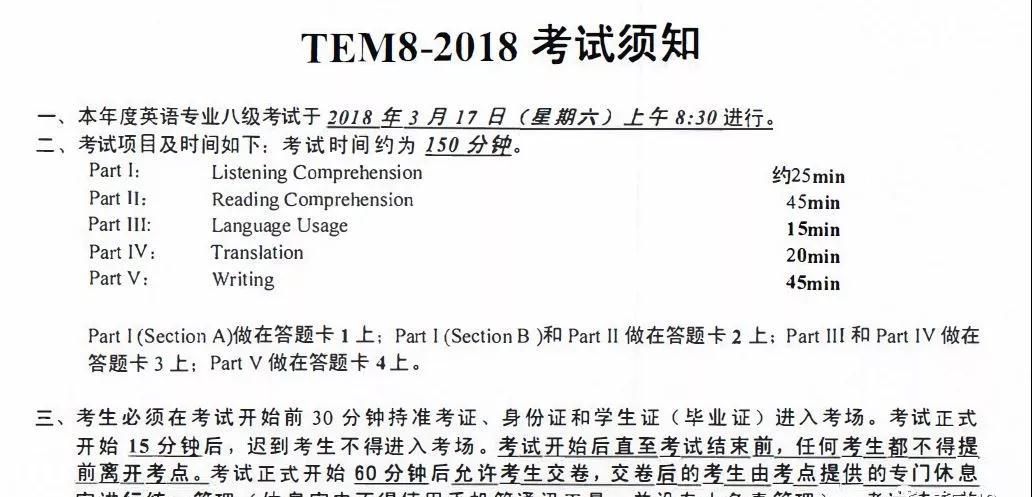自考“英语(一)”笔记 二
|
12. communicate v. 交流,交际,通讯 communication n. 交流,通讯 communicative adj. 爱说话的 To communicate with him is no easy job, as he is not a communicative person.(他是一个不爱说话的人,与他交流可不容易。) Speech and writing are man's most important methods of communication.(说和写是人类最重要的交流方式。) 13. inexact adj. 不正确的,不精确的 与independent一样,该词是由形容词 exact加前缀in- 构成的。 14. incomplete adj. 不完整的 complete adj.& v. 完整的;完成 This is an incomplete sentence, please add the omitted part and make it complete. 〔这是一个不完整的句子,请加上省略的成分使其完整。〕 I don't think I can complete the work in 2 hours. 〔我想我在两小时内干不完这活。〕 15. purpose n. 目的,意图,用途 purposeful adj. 有目的的,有意图的 purposefully adv. 有目的地,蓄意地 The purpose of the meeting was to discuss his proposal.〔会议的目的是讨论他的建议。〕 He let out the information purposefully to you.〔他有意向你透露了这个消息。〕 16. regularly adv. 经常地,定期地 regular adj. 经常的,定期的 irregular adj. 不规则的,无规律的 If you review your lessons regularly, you will do well on tests. 〔如果你定期复习功课,就能在考试中取得好成绩。〕 17. technique n. 技术,技巧,手艺 Good study techniques help him to be one of the straight A students in his class. 〔良好的学习技巧使他成为班上的全优生之一。〕 18. outline v.& n. 概括;大纲,提纲;轮廓 He listened carefully as I outlined my reasons.〔在我简述我的原因时,他认真地听着。〕 The English teacher asked us to write a brief outline of the story. 〔英语老师让我们写这篇故事的概要。〕 He saw the outline of the house in the moonlight.(在月光下,他看到了那座屋子的轮廓。) 本课主要词缀 1. 名词后缀 -ment agreement, statement 2. 名词后缀 -ation, -ion, -sion communication, completion, conclusion 3. 名词后缀 -ity similarity, regularity 4. 名词后缀 -ence intelligence, independence 5. 形容词后缀 -ful successful, purposeful 6. 副词后缀 -ly conversely, regularly, purposefully 7. 反义词前缀 in inexact, incomplete, independent 8. 反义词前缀 dis disagree, discover 本课简介 How to Be a Successful Language Learner 是一篇典型的说明文。此类文章通常以逻辑顺序安排材料,作者要回答HOW或WHY方面的问题。在说明文的阅读与写作中,要注意抓主题句以及使文章内容启承转合的常用词句。 本课中,作者从一句引言入手,先谈了人们对语言学习的看法,然后阐述了自己对学好语言的看法。文章条理十分清楚,对我们学写说明文很有帮助。 本课语言点 1. Learning a language is easy. 这是一个 主语+动词+表语 (SVP)句型。句中learning a language为动名词短语,在句子中 做主语。再如: Forgetting the past means betrayal.(忘记过去就意味着背叛。) 请翻译下面的句子: 1) 阅读英语比讲英语容易。 (Reading English is easier than speaking it.) 2) 集邮是我弟弟的爱好。(Collecting stamps is my little brother's hobby.) 2. Even a child can do it. even在句中作副词用,加强语气,表示“甚至(…也),连(…都)”。如:He even didn't trust his best friend.(他甚至不信任他最好的朋友。) 请注意even与 even if / though的区别并翻译下面的句子: 1) 这个我连听都没听过。(I haven't even heard of it.) 2) 即使花了数天时间复习,他也没能考好。(He didn't do well in the exam even though he spent days reviewing.) 3. Most adults who are learning a second language would disagree with this statement. 句中who are learning a second language为定语从句,修饰先行词most adults,再如: The man who wrote this book is a teacher.(写这本书的人是一位教师。) 请翻译下面的句子: 1) 穿蓝色夹克的那个男孩是我们的班长。 (The boy who is in a blue jacket is our monitor.) 2) 你昨天借给我的那本书很有趣。 (The book that you lent me yesterday is very interesting.) 句中的would是助动词,表示“可能”,“(将)会”。例如: A picnic without you wouldn't be fun.(野餐没你参加会很没意思。) 助动词would的用法很多,概括起来主要有如下几种: 1) 表示过去将来时:I felt confident that everything would be all right. 2) 表示意愿:I asked him not to do it, but he wouldn't listen to me. 3) 表示习惯性:Every evening, we would go for a walk along the river. 4) 表示虚拟,假设,条件:If you had come earlier, you would have seen him. 5) 表示婉转地请求或建议:Would you look after my cat while I am away? |








